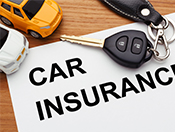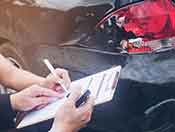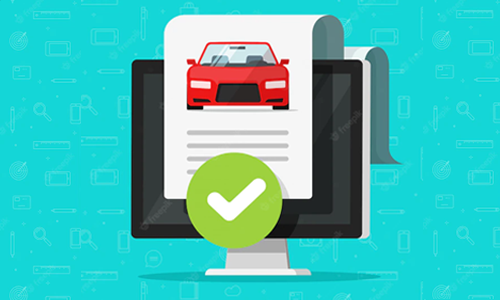Well, probably you have come to the decision of buying a used car, and you have started the hunt to find ‘the one’ out there, for you. However, do note that the steps that follow your decision will definitely be trickier as opposed to the ones that helped you reach this choice of purchasing a used car. Of course, it goes without saying, that you would want a car that is in the best of the condition and at the lowest price that is possible. Just because you are opting for a second-hand car, does not mean that you would settle for something that does not even fit your criteria for a car, right? Nobody wants to settle for merely a piece of junk.
For you to not end up regretting your decision, it is extremely important to be very careful and cautious when opting for purchasing a pre-owned car. Further in this thread are some tips for you that you must be aware of while buying a used car.
9 Tips to Protect Yourself When Purchasing a Pre-Owned Car
Follow these 9 tips to have a happy purchase:
1. Extensively Research Your Available Options
Before you go ahead and get in touch with the sellers, make sure you are equipped with the required knowledge about the pre-owned car’s model that you wish to buy and the price range for the same.
If you know any relatives or friends who have gone through a used vehicle’s purchase, ask them for pointers to keep in note. You can also consider joining forums, especially those that target your desired car’s make or model and then ask the questions that you have in mind. You should also keep a check on the second-hand vehicle listing on various websites and newspapers to have a rough idea of how much your choice of model costs.
2. Compare the Prices of Used Cars
As you do your research and you go through the various available websites finding out about the different used cars for sale, consider making a price comparison of your preferred model. Also, side by side, make sure to check out the specification of the models that are priced at the lowest – they might either be older year models or they might be having higher mileage.
If you are considering purchasing a pre-owned car via financing through a loan, you should compute the amount that you will be paying in the form of interest and then compare the cost coming out to be as opposed to paying the entire amount in the form of cash.
3. Check the Mileage
When you are researching, do not just focus on the price of the pre-owned vehicle. The cheapest second-hand cars are not necessarily the best ones to buy, generally, they have higher mileage. The higher the mileage of a vehicle, the older it is. The older the vehicle is, the more are the parts you might have to replace.
So, it is important to ensure that you go through important details while researching, especially on the mileage of the vehicle that you are considering to purchase. It is good to avoid vehicles that have very high mileage because such a unit’s parts have a chance to be worn out.
To verify the mileage of a vehicle, you should pay attention to the steering wheel and pedals during the inspection of the vehicle. The conditions of these parts can speak great volumes about the actual age of the car.
4. Set an Appropriate Budget
On top of the purchase price of the car, you should keep some funds aside for the replacement and repair costs that will help you prepare yourself to run your vehicle on the road. This will help you spare yourself from any stress involved in taking out cash from your own wallet every time any component on your newly purchased pre-owned car breaks down.
5. Dive Deep in the Car’s History
The biggest factor in terms of risk while buying a used vehicle is its history. The car may have been involved in an accident, been stolen, or been part of a crime, or even flooded. How are you supposed to know about the service history of a second-hand vehicle? The following are some ways that can help you find out.
- Check the Certificate of Registration of the Car along with the Original Receipt
It is important to ensure that the vehicle as well as such important documents issued by the authorities is correct. The seller should be providing you with copies for the same.
- Verify the Record of the Car
You can find out the record of the car in the database by contacting the relevant authorities.
6. Check for Any Red Flags
It is never a good idea to agree to purchase a car without having done a thorough inspection by yourself. Be as alert and thorough as possible. Make sure to check every little detail and not just the body of the vehicle. Keep an eye out for any red flags that might indicate the car’s involvement in any flooding or accident.
Some signs to keep a lookout for are as follows:
- Filler on the vehicle’s engine block
- Inconsistencies in the quality of paint
- Any touch-ups to cover bent parts or scratches
- Improper working of components
- Mismatched tires
If you feel like you are not confident about your skills when it comes to inspecting the vehicle, you can consider getting a mechanic, who you trust, to do this job for you.
7. Do Not Skip the Test Drive!
If the car passed your visual inspection, the next move is to move onto the test drive of the vehicle. It is important for you to insist on driving the car for a test, if the seller says no to your demand, it is a sign to just simply walk away. It is not a good option to choose a vehicle because it costs you less, as it will end up giving you stress in the long run.
8. Negotiate a Price That’s Fair
You can fairly come onto a rough idea of a vehicle’s condition after the visual inspection as well as the test drive. With this information, you should come onto a price that you wish to negotiate with the seller or the former vehicle owner. You can raise the chances of settlement at your desired price by pointing out any red flags that might have occurred when you were inspecting the vehicle or test driving it.
9. Do Not Forget About Insurance!
If you have just bought a pre-owned vehicle and it does not come with a car insurance plan, you will have to purchase one before you actually take your vehicle out on the roads for a spin. Used cars, just like the new cars, are not exempted from accidents that can cause a great burden on your wallet if your vehicle is not insured. It is extremely important to hold a car insurance policy that suits your needs and requirements in the right way, hence, it is important to go online compare car insurance and then buy the right plan for yourself.
The Bottom Line
It might sound like a tedious procedure when it comes to buying a pre-owned car but it can be easy if you are well aware of the options available to you. To make sure you end up with a wise purchase, you should take the buying process seriously.
Related Links -
More From Car Insurance
- Recent Articles
- Popular Articles
.jpg)





-in-car-insurance.jpg)










